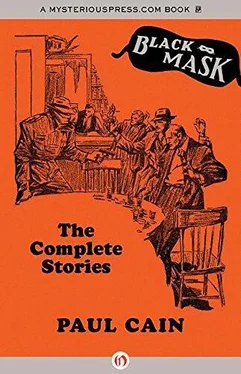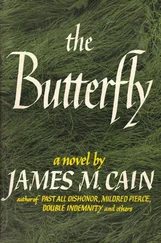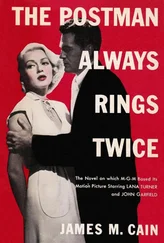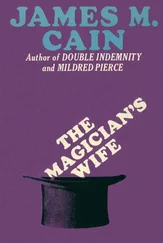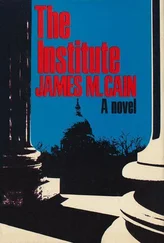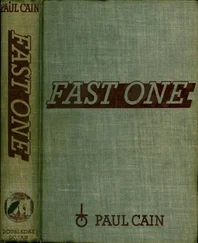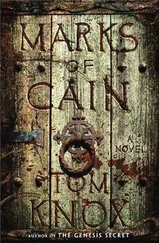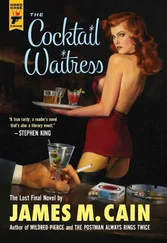On the evening with which this tale is most intimately concerned, a wisteria cab drew close to the curb as Etienne and Bubu were waiting for the light to change at Madison Avenue, a man wearing a curly, obviously false beard thrust his head out and went “His-s-st!” Etienne, after a brief glance, continued across the street, west; he never spoke to strangers.
As they crossed Park Avenue on the homeward lap, the wisteria cab again stopped directly in front of them with a thin shriek of brakes, and the man again popped his head out of the window hoarsely to whisper, “His-s-st! I must speag to you!” His accent was deep Balkan Peninsula, darkly belying his blond beard and what Etienne now, on second inspection, saw to be an even blonder wig. For answer, he exhaled a thick cloud of green smoke which momentarily obscured the entire cab and when it had cleared away, they were alone. Bubu giggled soundlessly; they went home.
There, doffing his slippers and wilted seersucker, Etienne enjoyed a tepid shower, then wandered in monstrous nakedness to a front window of his living quarters above the restaurant, peeped; as he had more than half suspected, the cab was across the street. He snapped his fingers. Bubu, slicing a pomegranate in the kitchen, two floors below and in the rear of the house, though mute, was gifted with preternaturally acute hearing, jumped at the first snap and galloped up the stairs.
“Go” — Etienne indicated the cab — “Go and bid the bearded stranger enter.”
Bubu grimaced up at him in stunned wonder for a moment and, after a simple handspring, clattered down the stair. Gertrude, the myna bird, who had been indulging in unaccustomed silence since Etienne’s return, now, after a deep sigh, sang out, “Man the pumps, men — we’re heading into a sou’wester.” There was often a certain incongruity in Gertrude’s pronouncements, in that while her words and usually her sentiments were most uncouth, her diction was perfect — perhaps a little too much so.
Etienne watched Bubu scuttle across the street and make signs to the stranger, then crossed to sit on a wide divan; in a matter of moments the stair creaked — a touch ominously, he thought — Gertrude gave with a thick and obscene guffaw, and Bubu, bowing to the floor, waved the bearded man into the room.
He was a young man, thin of shank and broad of shoulder — a tall young man with a kind of steely beauty about him. He wore a simple black sack suit, black sneakers, a plain white shirt, and a narrow black four-in-hand tie, carried a large squarish object in Christmas paper: a bit of an anachronism because it was the middle of July. Etienne inclined his head towards a nearby chair, and the young man gratefully sank into it, put the obviously heavy package on the floor between them.
“I am moz happy you decide to speag wiz me now,” he gurgled, “elz I ’ave to bozzer you day after day until you do.”
Etienne nodded almost imperceptibly. “You may as well remove your whiskers,” he suggested, “and your wig.” He picked up the big palmetto fan, fanned. “It is very warm.”
“Ett eez eendeed,” said the young man. “Zank you, zank you!” And whipping off his blondness he shoved it into his pocket, disclosing a long tanned Greco face, also bearded, but blue-black, a cap of shiny blue-black hair.
“The accent, too, is obviously a strain,” Etienne went on after a moment. “It is entertaining at first but would wear on me terribly in a little time. Shall we dispense with it?”
“Very well, sir,” the young man said in perfect English, a touch stiffly.
“And now” — Etienne’s roving, faintly amused eyes had come to rest upon the gaudily sealed and beribboned package — “and now, what, in an exceedingly banal but blessedly short phrase, have we here?”
“Ah!...” The young man leaned slowly forward until his long nose almost touched a kind of conical projection protruding from the top of the package; his dusky gaze was fixed upon the small still life — a pear, a pipe, a mandolin — that Braque himself had tattooed upon Etienne’s left chest these many years ago. “Ah, Monsieur de Rocoque,” he intoned breathlessly, “we have here the answer to all your problems, all your prayers — the dearest wish of your heart... We have here,” his nose grazed the conical projection, “the Tasting Machine...”
Etienne’s, it must be stated somewhat parenthetically here, is not a restaurant in the ordinary sense. No one can buy a meal there — a plat , a sweet, nor even a glass of wine. Etienne de Rocoque, Chef de Cuisine Transcendantale, is infinitely beyond being a restaurateur and has so been for many years. His is a clientele conspicuous for its far-flung sparseness, an even hundred pampered stomachs scattered about the earth. But once each month or so he plans and cooks and serves one dinner, or one luncheon, or, perhaps, even a breakfast, and to that boon are invited two or three — five on a really festive occasion and never more than seven — of the fortunate few who grace his guest list.
From Montreux comes, mayhap, the Duc d’Ange, Montfiore Toeplitz from Madrid, Ling Hang Lo from Chungking, The Hon. Jezebel Gapeingham, O.B.E. from Bath. And Etienne, in this time, redolent of steam and sweat and spices, lopes about his kitchen plucking gastronomic pearls, one after another, out of his pots and pans and ovens to set before these favored four and finally, wilting with joy, presides at table — to taste, alas, only their pleasure.
There is his cross. It is not so much that he cannot share these viands, these fabled wines with them — the pain of that is dulled by years — but that his whole life is limited now, designed for, geared to, actually dependent upon their appreciation of his work, their grunts and groans and low-pitched moans of ecstasy. Here is the crux of the matter, then — whisper it softly, softly — even the most superlatively attuned palate sickens of wonder, in time... There is his cross...
Etienne had paled. This, a phenomenon of whiteness which, even when he was fully clothed, had been known to affect the beholder with a kind of nameless terror, was now, in his huge nudity, little short of stupefying. The young man drew back, closed his eyes. Bubu ran to hide his head in a corner; Gertrude hummed a bar of “Throw out the Life-line,” delicately belched. Then Etienne’s blood surged to his veins again and he pinkened back to life.
“What do you know, dark youth,” he demanded in a thunderous whisper, “of my problems, my prayers, my heart’s dearest wish?”
“That which I do not know I have divined,” said the young man quietly, opening his eyes. “Such is the frailty of flesh that you have come now, finally, to founder in perfection.”
Etienne pondered this at length. Here, in a simple and felicitous turn of phrase, this extraordinary fellow had named his malady. Perfection...
“And how,” he slowly lowered his stare to the package, “and what has this contraption to do with me?”
“Everything.”
“And how did you come by it?”
“I invented it.”
The young man had leaned forward to tear off almost savagely the ribbons, the bright paper; a glossily dark gray box resembling a small phonograph was revealed, its simplicity marred only by four jointed metal arms on one side, folded now, at the extremities of which were deftly welded a knife, a fork, a spoon, and a kind of two-pronged hook. There was a small round aperture in the same side, and the conical projection on top, which now turned out to be a plexiglass tube containing a single hair-thin filament.
“I invented it,” the young man repeated, then breathed devoutly, “for you.”
Bubu had turned from the corner, and Gertrude swooped to light upon his shoulder; together they approached to examine the gift with timid skepticism. It is typical of Etienne that he did not laugh, nor smile, nor anything, but accepted the validity of the machine as easily as he would have accepted the color of an Oncidium orchid — not so much from naïveté as from a kind of congenital innocence of cynicism.
Читать дальше
